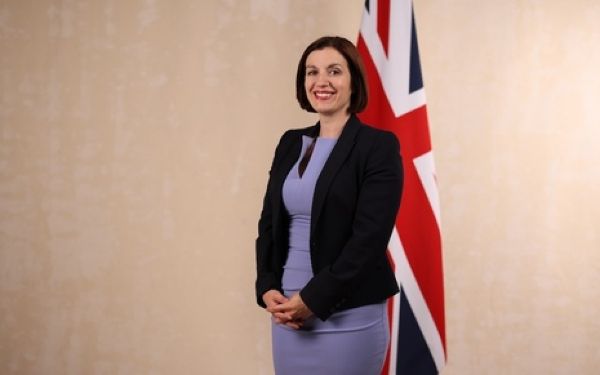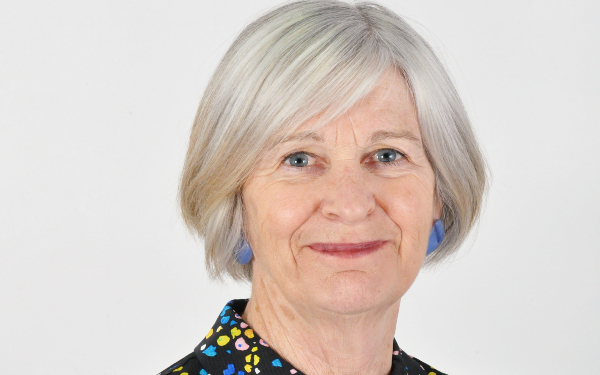
The government has pledged to “crack down on care providers making excessive profit” from care placements, in children’s social care reforms unveiled today.
Labour’s proposed reforms to tackle “profiteering” are similar to those put forward by its Conservative predecessor, including through the regional commissioning of care placements and increasing the transparency of providers’ pricing.
But the government also warned that, should these not work as anticipated, it would cap providers’ profit levels from children’s social care placements.
The reforms, set out in a policy paper today, also include empowering Ofsted to investigate companies running multiple children’s homes and more speedily take enforcement action against unregistered services.
The Department for Education (DfE) will also tighten recently introduced rules limiting councils’ use of agency social workers by placing these into legislation and extending them to cover other children’s social care staff.
New safeguarding requirements on councils
In addition, it will require councils to set up multi-agency child safeguarding teams, and to also offer family group decision making meetings when cases reach the pre-proceedings stage, to give family networks the chance to find alternatives to children going into care.
In response to the huge rise in children being deprived of their liberty under the powers of the High Court due to a lack of suitable placements, it will create a statutory framework for these cases.
The DfE added that its reforms, generally, would also seek to rebalance the system towards early intervention in order to keep families together, in the context of the care population standing at near-record levels.
This continues the emphasis of the agenda set out by the Conservatives in their Stable Homes, Built on Love strategy published last year, which was itself based on the recommendations of the 2021-22 Independent Review of Children’s Social Care.
The policy paper said the legislation the DfE was proposing would be brought forward when parliamentary time allows. This is likely to be through the Children’s Wellbeing Bill, which was promised in the King’s Speech.
‘We will crack down on providers making excessive profit’
Education secretary Bridget Phillipson said the care system was “bankrupting councils, letting families down, and above all, leaving too many children feeling forgotten, powerless and invisible”.
“We will crack down on care providers making excessive profit, tackle unregistered and unsafe provision and ensure earlier intervention to keep families together and help children to thrive,” she added.
A key focus of the reforms is the rising cost of care for looked-after children, which the government said had “ballooned” from £3.1bn in 2009-10 to £7bn in 2022-23.

Photo: pla2na/Adobe Stock
This has been driven by a shortage of suitable placements located in the right areas, which some providers have been accused of exploiting to increase fees and extract undue levels of profit from children’s care.
In its 2022 report on the placements market, the Competition and Markets Authority (CMA) found that, among the largest 15 providers, profit margins averaged 22.6% in residential care and 19.4% in fostering.
It said this was higher than would be expected in a well-functioning market, though it rejected the case for banning or capping profits on the grounds that this would reduce incentives for providers to invest in services and further shrink supply.
Backing for regional care co-operatives
Concerns about profit have led the Labour government in Wales to issue legislation to restrict the making of profit from children’s care, with a long-term aim of eliminating it altogether.
Its counterpart in Westminster will largely follow the blueprint to tackle profit set out by the Conservatives in Stable Homes, including by creating regional care co-operatives (RCCs) to commission placements on behalf of member authorities.

Photo: momius/Adobe Stock
RCCs are currently being developed in two areas, Greater Manchester and the South East, where they will go live next year.
In its policy paper, Keeping Children Safe, Helping Families Thrive, the DfE said RCCs would “harness the collective buying power of individual local authorities”, improving value for money from commissioning, while also developing provision to fill gaps.
It said it would legislate to enable groups of councils to set up RCCs, with ministers also taking powers to direct them to do so or intervene if a co-operative was not performing at a required standard.
Boosting pricing transparency
In another echo of Stable Homes, the government said it would seek to fill gaps in councils’ data around care costs, to “enable them to negotiate effectively with providers to secure the best placement for children at the lowest possible cost”.
“We will engage with the sector to bring about greater cost and price transparency which will aid local authorities in challenging profiteering providers, as well as enabling greater central government oversight of the placements market,” it said.
However, to guard against these measures not engineering a reduction in profiteering, the government said it would legislate to obtain powers to cap profit levels from children’s care placements, which would be enacted if required.
The idea sparked concerns from provider representative body the Children’s Homes Association, which said it risked “serious unintended consequences”.
“The CHA supports efforts to eliminate profiteering, but this law will incentivise more providers to adopt offshore interest and debt-driven business models,” it warned.
Greater oversight of hardest to-replace providers
Another Stable Homes policy being taken forward by the Labour government is setting up a financial oversight regime for the hardest to replace providers, to avoid children’s care being disrupted by businesses failing.
These providers, up to parent company level, would have to supply the DfE with financial information to enable it to assess the viability of their whole organisations.

Credit: lovelyday12 / Adobe Stock
They would also have to develop contingency plans to ensure that they did not exit the market in a disorderly way, while the DfE would have enforcement powers to ensure compliance with the regime.
Regulating children’s home groups
The DfE also pledged to give Ofsted the power to investigate multiple children’s homes run by the same company. The regulator has longed called for this to enable it to scrutinise companies’ decision making in relation to issues such as admissions, ending placements, budgeting and staffing levels.
The DfE said that, despite some companies ran over 100 children’s homes, Ofsted could not hold them to account for organisational failings that affected children’s care.
Under its plans, the regulator would be able to request, and monitor the implementation of, provider-wider improvement plans and be given powers, such as fining or preventing further registrations by the group, to enforce compliance.
Ofsted welcomed the proposal, with national director for social care, Yvette Stanley, saying: The proposed powers will strengthen our ability to hold providers to account at group level. This will mean that we can secure widespread improvements for children if there are patterns of failure.”
Tackling unregistered provision
The DfE said it would also give Ofsted powers to tackle a “worrying” rise in the use of unregistered provision, particularly of children’s homes and supported accommodation.
In 2023-24, Ofsted opened cases on 1,109 potentially unregistered settings and found that 887 (87%) should have been registered (compared to 370 in 2022-23).
Under the plans, the regulator would be given powers to fine providers of unregistered provision, as an alternative to criminal prosecutions, enabling it to act more quickly against organisations.
This was also welcomed by Ofsted, with Stanley adding: “It is only right that we are given additional powers and resources to better tackle persistent offenders and put a stop to unscrupulous and profiteering providers, once and for all.”
Housing support for care leavers
The reform package also includes legislating to require all councils to provide any care leaver (up to the age of 25) whose welfare requires it with support to access and maintain accommodation, along with practical and emotional support from someone they trust.

Photo: AdobeStock/Monkey Business
This would be based on the current Staying Close programme, which the DfE is funding 47 councils to deliver in 2024-25, at a cost of £22m, and would be designed to tackle the lack of support experienced by care leavers on moving into independent living.
The plan to extend Staying Close nationwide was also proposed by the care review and set out in Stable Homes, Built on Love.
The DfE said the duty on councils would not come into force until three years after the legislation is passed, to give them sufficient time to develop the service.
Charity Become, which supports young care experienced people, said it was “a very welcome and important first step” but must not become “another postcode lottery”.
Multi-agency safeguarding teams
Outside of the care system, the government has pledged to introduce a requirement on councils to set up multi-agency child safeguarding teams, involving professionals from social care, police, health and education, and other services, where required.
They would be responsible for investigating child protection concerns and managing cases, and would be staffed by specialists from the various constituent agencies.
This adopts a recommendation from the Child Safeguarding Practice Review Panel’s 2022 report into the murders of Arthur Labinjo-Hughes and Star Hobson.
That review found a “systemic flaw in the quality of multi-agency working”, with “an overreliance on single agency processes with superficial joint working and joint decision making”.
The panel’s proposed model of multi-agency safeguarding teams, along with the care review’s proposal for child protection cases to be held by specialist social workers, are being tested in the 10 families first for children pathfinder sites.
The DfE said the details of how the proposed teams would work would be based on the evaluation of the pathfinder, and councils and their partners would have time to prepare.

Annie Hudson, chair, Child Safeguarding Practice Review Panel
In response to the plan, panel chair Annie Hudson said: “We believe that this will provide a crucial new lever for tackling some deep-seated perennial problems in safeguarding children.”
Other child protection measures
Other child protection measures include placing a duty on parents to seek local authority consent to home educate their child where the child is subject to a child protection enquiry or on a child protection plan.
The DfE also plans to introduce a unique identifier for every child, to promote better information sharing between professionals. This will be piloted before the relevant legislation is implemented.
Alongside this, it will introduce a duty that would provide “absolute clarity on the legal basis to share information for the purposes of safeguarding children”.
This is designed to tackle findings that practitioners lack confidence to share information without families’ consent when there is not clear evidence of harm, despite there being other lawful bases to do so.
Rollout of family group decision-making
Councils will also have to offer families in pre-proceedings a family group decision making (FGDM) meeting, enabling them to be involved in decisions about their children’s future, where this is in the child’s best interests.
This is based on the findings of a randomised controlled trial (RCT), commissioned by what works body Foundations, into the use of family group conferences – a particular form of FGDM – at pre-proceedings, which reported last year.
This found that children whose families were referred for a family group conference (FGC) were less likely to have had care proceedings issued (59%) compared to those not referred (72%) and were less likely to be in care one year later (36%) compared to those not referred (45%).

Photo: zinkevych/Fotolia
The DfE acknowledged that “there may be barriers for local authorities in implementing FGDM at scale, including financial constraints and challenges around the recruitment or training of staff”. But it said it hoped its ambition could be realised through investment and the sharing of best practice.
Families should be offered ‘tried and tested’ FGCs – charity
Foundations’ chief executive, Jo Casebourne, welcomed the move, adding: “This type of family-led approach helps to avoid costly, late-stage interventions, and ensures that children and families get effective support at the right time.”
The Family Rights Group (FRG), which runs an accreditation programme for family group conferences services, was also supportive, but said it was vital that families were offered FGCs.
“For this radical ambition to be achieved, the offer to families must be of a family-led, robustly evaluated approach that has been tried and tested in the UK and abroad, namely family group conferences,” said FRG chief executive Cathy Ashley.
“They operate to clear standards and reduce the likelihood of a child entering or remaining in care. For children who cannot remain at home, they enable prospective carers to be identified from within the family.”
Virtual school head role extended
The government also pledged to legislate to require councils to appoint an officer responsible for promoting the educational achievement of children on child in need plans, on child protection plans and in kinship arrangements.
This role is currently carried out on a non-statutory basis by virtual school heads, who have a statutory role to promote the educational achievement of looked-after children and provide educational advice and information in relation to former children in care.
The DfE said its proposal would “bring consistency to the deployment of the role” and “ensure that children with a social worker and those in kinship care are in school, safe and are learning”.
Payment by results scrapped for Supporting Families
In her statement to Parliament announcing the policy paper, Phillipson said the government would consolidate more than £400m of children’s social care funding within the local government finance settlement in 2025-26, to simply resourcing arrangements for councils.
As a first step, it has suspended the payment by results mechanism of the Supporting Families programme, under which families with multiple needs are provided with multi-agency support, co-ordinated by a lead practitioner, to resolve issues.
Under payment by results, most councils receive some money for the programme up front with the rest delivered based on the outcomes achieved for families.
The Association of Directors of Children’s Services welcomed the decision to scrap the approach.

ADCS president for 2024-25, Andy Smith (photo supplied by the ADCS)
“[It] is a hugely positive step in the right direction towards ensuring that the limited funds in the system are used in the best interest of children and families, rather than on the mechanisms of tracking and reporting on this vital work,” said ADCS president Andy Smith.





 Bournemouth, Christchurch and Poole
Bournemouth, Christchurch and Poole  Hampshire County Council
Hampshire County Council  Oxfordshire County Council
Oxfordshire County Council  South Gloucestershire Council
South Gloucestershire Council  Wokingham Borough Council
Wokingham Borough Council  Webinar: building a practice framework with the influence of practitioner voice
Webinar: building a practice framework with the influence of practitioner voice  ‘They don’t have to retell their story’: building long-lasting relationships with children and young people
‘They don’t have to retell their story’: building long-lasting relationships with children and young people  Podcast: returning to social work after becoming a first-time parent
Podcast: returning to social work after becoming a first-time parent  How managers are inspiring social workers to progress in their careers
How managers are inspiring social workers to progress in their careers  Workforce Insights – showcasing a selection of the sector’s top recruiters
Workforce Insights – showcasing a selection of the sector’s top recruiters 

 Facebook
Facebook X
X LinkedIn
LinkedIn Instagram
Instagram
All of the above has been in practice for years. A failure to challenge placement contracts with consequences for providers has led to big companies profiteering from misery.
Local authorities closing down their own residential establishments has led to long arm attempts to manage placements which are not in their governance to control or monitor for decades.
As for multiagency working and early intervention…if only social care is responsible for caseholding and subsequently carrying the can for dumping ground systems without a voice how the hell do you even find collaborative working.
None of these measures are new or address systemic failures and help children and families. Platitudes and talk of ‘markets’ are not what fixes abuse or care!
It will be interesting to see how they clamp down on care providers making excessive profits. The care providers will be unlikely to do it voluntarily aka there are zero care providers today talking to their team saying ‘The priority is to make less money’, in fact they the priority is often to make as much money as is possible.
Many care homes in the UK are owned by Private Equity companies including those based in Qatar and the emirate of Abu Dhabi*. They have to make a profit. The Private Equity company will never open up its books, but i guess that the care provider that they own many be able to open up on data.
References.
* https://www.theguardian.com/society/2023/dec/23/england-childrens-care-homes-backed-by-private-equity-firms-double-over-five-years
https://www.tortoisemedia.com/2024/07/01/why-are-private-equity-firms-running-childrens-homes/
The measures being proposed appear to acknowledge the need for change if children,young people and vulnerable family’s are to recieve robust,professional and meaningful plan’s to safeguard and enable them every opportunity to achieve in life.
However these proposals will only work if they are implemented to a level which demonstrates commitment to change by all services.
Placements should not be allowed to end abruptly without investigations into why,what needs to change,involving the young person,what written safeguards/plan’s have been put in place by the placement,before requesting additional funding.When the placement claimes to offer threapic work what work have they completed (this would have been in thier misson statement and or contract of agreement) have they followed the end of placement procedures? Which should allow a cooling of period or do they demand the placement ends straight away. (The later offen apply)
Without these enquiries/processes taking place only leaves the young person feeling even more invisable,feeling no one cares and lacks any professional decision making by the multi agency services we claim to deliver. Does it not?
Everything has a knock on effect.If a placement or foster placement breaks down,this affects the out come and delays any plans.Look at the wider picture before blaming social workers.
Social workers do not work alone and can not implement the above proposels if others are not held accountable for the service they claim to offer.
These are my experiences.
The measures are great given that care workers are the least paid and i wonder where the profits are going to.
If you haven’t got enough publicly funded provision you have to goto to the market and the market is going to do what the market does – make as much money as possible.
Why can’t a labour government just take the historic labour position? These are children in the care of the state and the state should provide good care, not buy it from someone else. The local authority boundaries are the problem, no one local authority is going to create the specialist provisions – it needs central funding.
Labour can’t do that because historically public provision has been expensive and of poor quality. Even with some homes making 30% profits, it’s still cheaper than in house provision. The solution is not to crack down of profits nor provide in house provision, it’s to encourage competition by making it easier to open new homes locally. Councils could do this by engaging with the already existing good quality provision and inviting them to branch out into new areas such as children’s homes. Many elderly or young adult providers would jump at the chance to make a better profit than the paltry one they make with their current expertise, but moving into another market is risky.
Social workers are in position’s whereby they can observe the impact on the child/young person.The young person who displays behaviour of brevardo, is this a form of self protection? (I believe it is)
The young person who breaks down in tears, but attempts to hide thier feelings under thier huddie,the young person who will not give up thier phone.(I believe this to be thier form of self protection )
The home that insist the young persons phone is removed is this a deprivation of liberty or for Safeguarding purposes?
I believe most social workers and managers want to deliver professional and safe practice which involves knowing and following the processes already in place,however the current position the service finds it self in in my opinion limits the quality of the service.
Is it therefore not the responsibility of those in senior position’s to ensure social workers have the resources to support the profession.
In my opinion funding is being spent on provisions which do not provide value for the services they claim to offer. I have yet to see any home start a package of threapic work before requesting the social worker solves the issues to then request removal of the child,of course a child will demonstrate challenging behaviour, is this not why thier services have been requested?
There needs to be more transparency Responsibility to provide evidence they have in place plans to ensure the child/young person is receiving relevent and meaninful services which meet thier needs.
Imagine how that child must feel!!!
Have we lost sight of why we trained in this profession we are working with vulnerable children and young people who will be the future of society.
Just to explain in respect of my comments regarding the deprivation of liberty law.
If a local authorty holds paental responsibility for a child under the age of 16 years old where by they can prove there are safeguarding issue’s.Social workers may apply to court under the deprivation of liberty law.
This may be for various reasons for example medical treatment or the Safeguarding of a young person who may continue to have contact which may impacts thier safety.
Social workers must balance the need for this protection and whether this decision is in the child’s/young persons best interest.
These are based on my experiences as a practicing social worker of 43 years plus in child protection work.The role and responsibilities social workers carry is complex and demanding.If social workers say they can not deliver a service should this not be listened to.
I feel strongly about this.
Based on the level of the government’s success in their proposals for tackling profiteering of private companies in other sectors (the railway companies, the fossil fuel companies and the water companies spring to mind, whose charges just seem to go up and up, rather than down, as a result of ‘crackdown’ measures introduced with the good intentions of bringing about lower costs and improvements in their services) I wouldn’t hold out much hope of either reducing costs or better provision in the care sector becoming available any time soon either.
Good point Annie that I had not though of
Children and young people are human beings and one of the most vulnerable in society.In my opinion services which should be meeting the needs of children are not offering what they claim to.
Services which should challenge do not.The culture is say nothing do nothing. (Saying something or doing nothing both have implications for us all in the long term)
Is this because of fear,complacency,attitudes,lack of respect, lack of informative and respectful leadership,lack of resources, funding,lack of recognition for the demands of the role and the long hours social workers provide, professionals who are trained and equipped to meet the challenges of the role.
I would say all the above plays some part.Is it not therefore senior manager’s who should ensure professionals are listend to!!
Children, young people and vulnerable family’s are still the future of society.